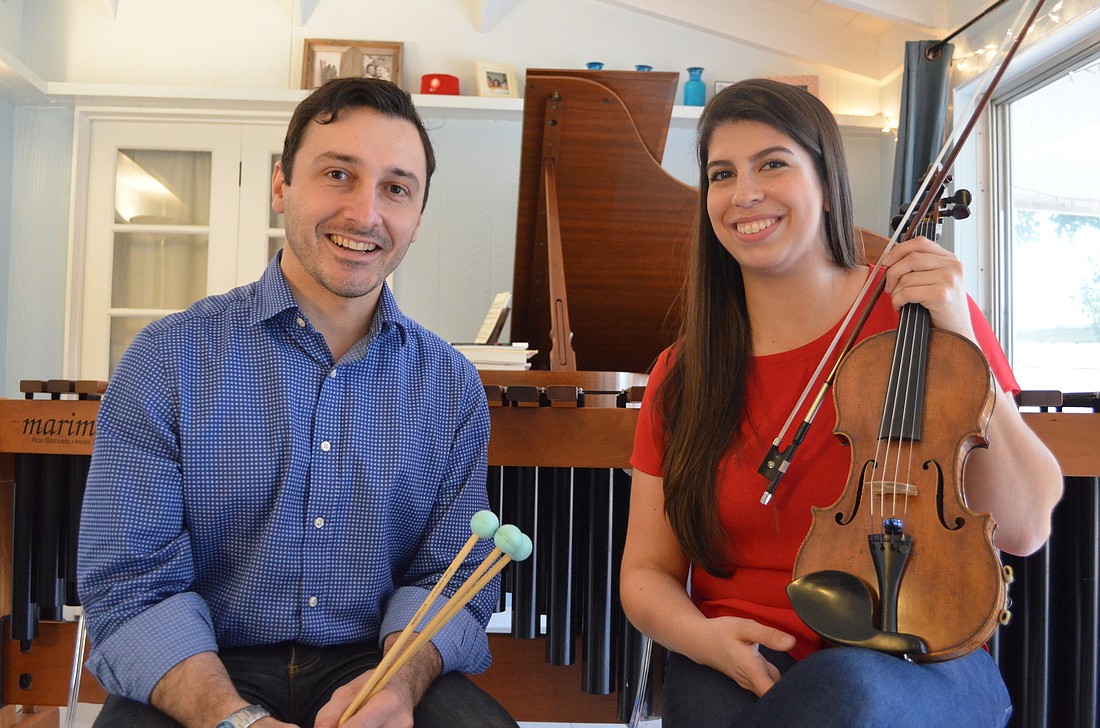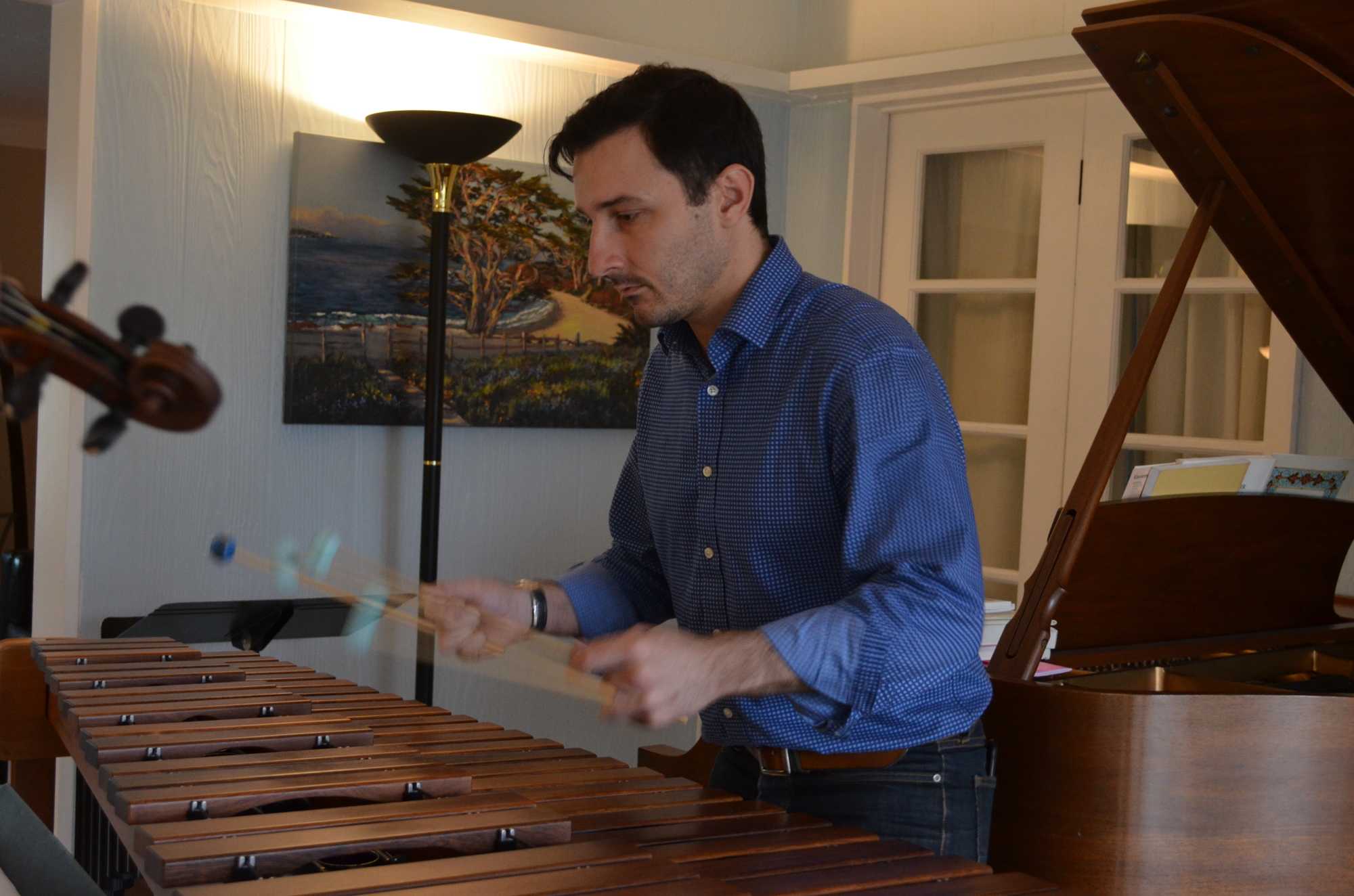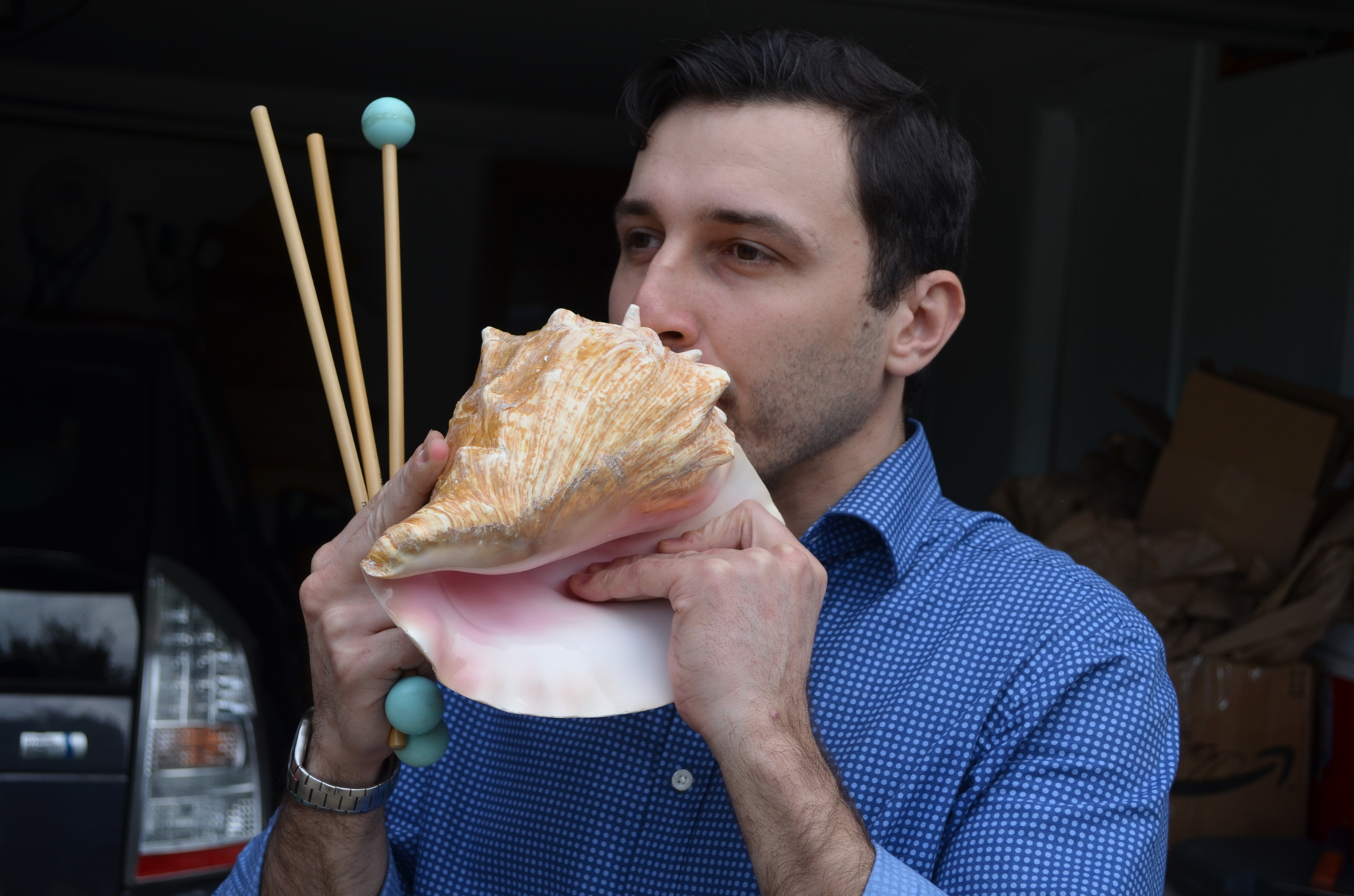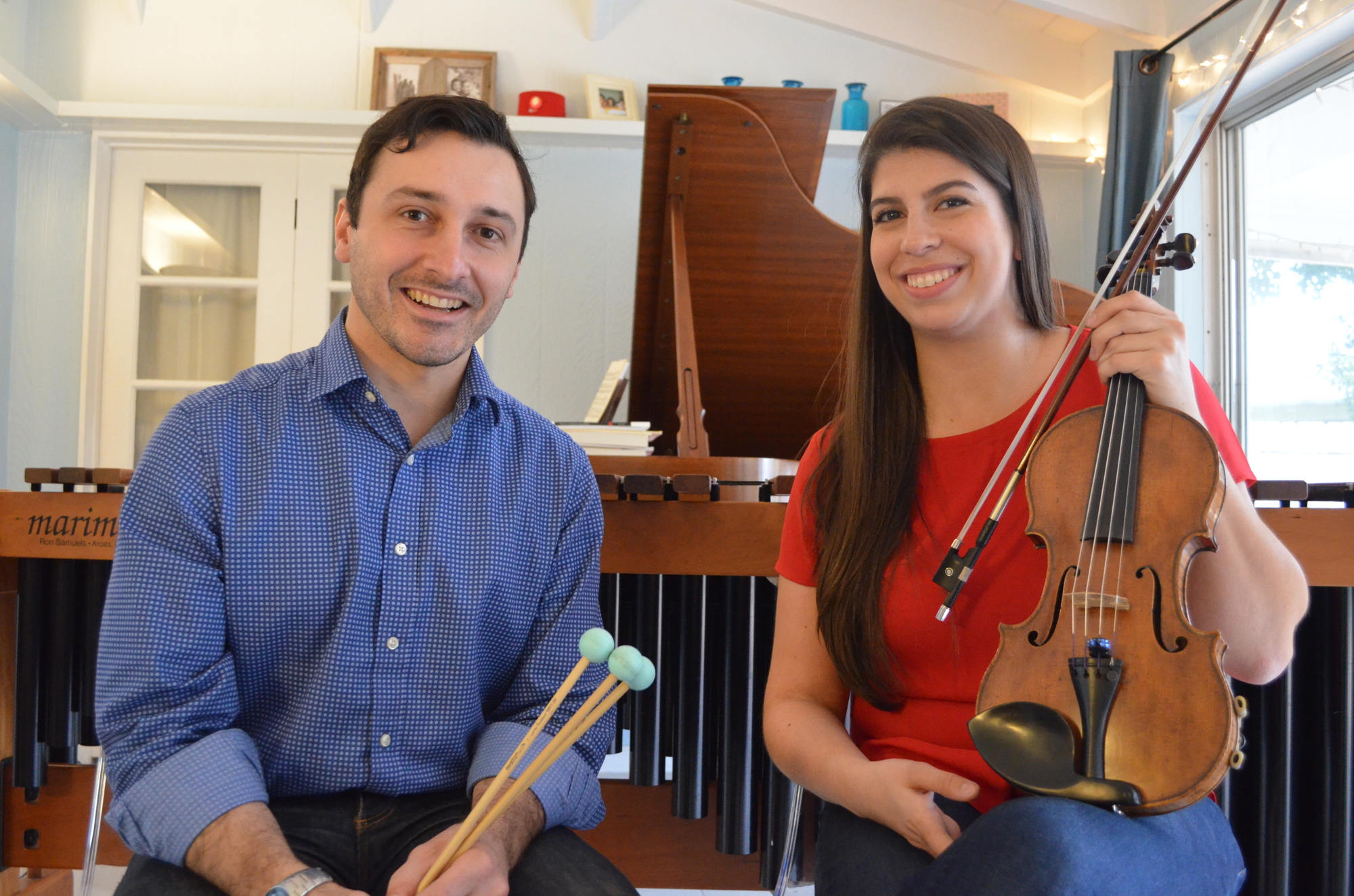- April 25, 2024
-
-
Loading

Loading

George Nickson is on a mission. He’s stopped in an antique shop just north of downtown Sarasota in search of something peculiar. The shopkeeper emerges from the back room, notices him surveying the merchandise and asks how he can help.
“I’m looking for a grandfather clock,” he says.
The shopkeeper tells him he’s in luck; he has three in stock. The only problem — they don’t work.
“That’s perfect,” says Nickson. “What do you want for them?”
Nickson isn’t concerned with keeping the time. He wants the clock’s chimes.
He’s preparing for an upcoming concert with EnsemblenewSRQ, the new contemporary music collective he recently co-founded with fellow musician Samantha Bennett in hopes of introducing modern, edgier music to Sarasota audiences. Nickson’s antiquing trip is a perfect example of what people can expect. One particular piece of music in the concert, in addition to violin and percussion, calls for the chimes of an old grandfather clock.

“As contemporary musicians, we’re often asked to create new sounds,” says Nickson.
He’s back at home now, standing outside his garage, examining the clock to find the steel rods that create its recognizable chime. Part of what makes this style of music so different, or adventurous, as he puts it, is its unique instrumentation.
“The composers will make these bizarre requests for instruments,” he says. “Some of it’s completely wacky, but the end result is beautiful. It’s not every day a musician is asked to rip apart a grandfather clock.”
A Missing Piece
Before Nickson and Bennett moved to Sarasota, four and two years ago, respectively, they were living in Boston, studying at the New England Conservatory of Music, where they met. While pursuing their degrees, they were immersed in the city’s contemporary music scene.
Bennett, now a violinist in the Florida Orchestra, and Nickson, a percussionist in the Sarasota Orchestra, both have backgrounds in classical music. Bennett began playing at age 6 and has a bachelor’s in violin performance; Nickson studied percussion and earned his master’s from Juilliard. Although they’re classically trained, they say they’ve always been drawn to contemporary music, and they played in contemporary ensembles in their free time.

Bennett says seeing how well that music thrived and how vibrant the scene was in New England inspired them to bring it to their new home in Sarasota.
“Contemporary music is such a big part of the cultural identity of a big city,” she says. “Being exposed to, and being a part of that scene was inspiring. Sarasota has all the same components of an artistically rich city, but it’s missing this. We want to make that happen.”
The ensemble will consist of a rotating cast of musicians. Bennett and Nickson are co-founders and artistic directors, and they’ll pull from their network of local musical confidants as needed. They’re planning two concerts in their inaugural season; the first will take place March 8 and March 10.
The music they plan to perform is written by 20th century composers, many of whom wrote their works in the latter half of the century and are still living.

Nickson says he hopes to attract a new, younger audience, as well as expose Sarasota’s existing audience to a new style of music. He plans to make the concerts more interactive, introducing each piece to the audience and putting it in context.
“I think there’s an image problem sometimes,” he says. “People don’t feel like this is cool, or hip. We want to curate the experience, put it into context and help change that.”
The Music of Our Time
One challenge with playing music from another time period, says Bennett, is that it’s inherently more difficult for audiences and performers to relate to. It was written in a completely different historical and social context, and as universal as the themes may be, there’s a certain level of disconnect.
“For the violin,” she says, “there’s an incredible repertoire, spanning hundreds of years. But to a certain extent, it can feel like acting, from a performer’s standpoint. Contemporary music is challenging in a different way. It’s a completely different skill set, both physically and mentally, and the ability for the artist to interpret and improvise is built into the composition.”
As a percussionist, Nickson says it’s the first time his skill set is put at the forefront. A lot of contemporary music is percussion-driven, which he says is a big reason it’s so relatable and engaging for audiences. There’s a one-to-one translation between the musician and the sounds they’re creating.
“There have been numerous masterpieces written in the last 100 years,” he says. “If nobody plays them, nobody will ever hear them. I think it’s my responsibility as a musician to make sure the art of music gets furthered. In 50 years, I don’t want to only have played music that’s been played thousands of times. There are countless masterpieces out there.”
Nickson and Bennett are putting the final touches on the upcoming performance in their home rehearsal space, and the unique nature of the music is immediately evident. Tin cans, steel pipes and a six-string electric violin that runs through a loop pedal are all utilized. Tomorrow, Nickson is headed off to the junkyard to salvage six sizes of brake drums.
“You get some weird looks,” he says. “But this is exciting music, and I think people will be surprised how much they enjoy it. It sounds modern — it speaks to the art of our time.”